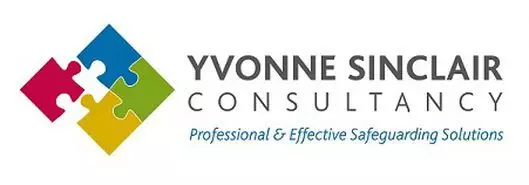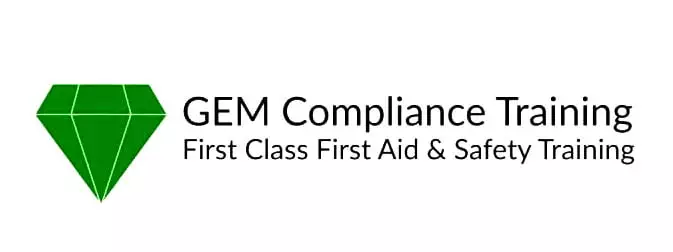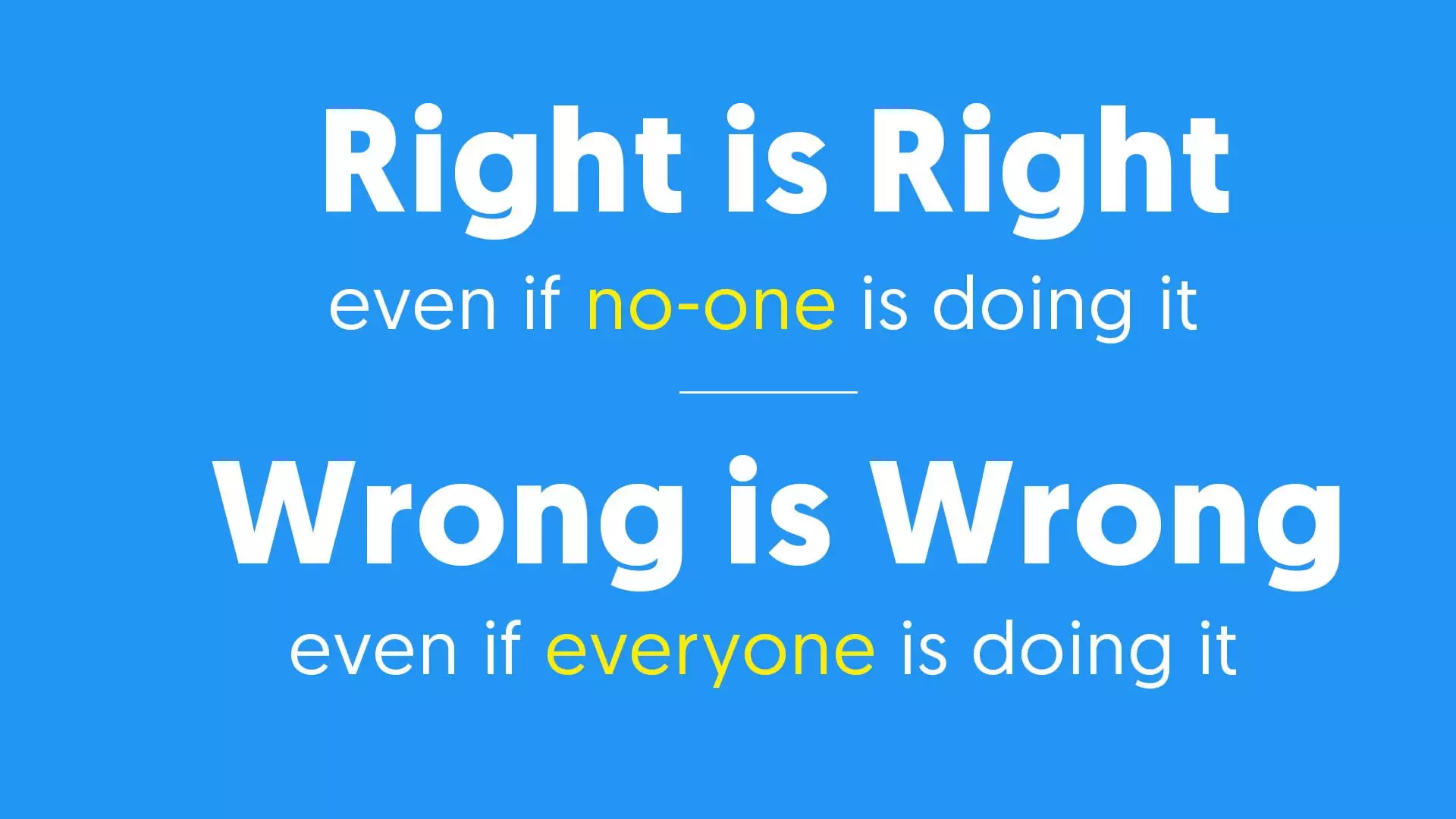Rachel Priestley
Challenge or opportunity? You decide...
Challenge or opportunity? You decide...
By Karen Amos
As a small business owner, I don’t always have the luxury of lots of spare capacity or fall-backs when things quickly change. Such a thing happened recently when one of my support team decided to take up a new job opportunity. Whilst I’m gutted to be losing a key support, I do understand their reasons for moving on and wish them every success. Inevitably though, this still caused pressures within my business.
After my initial OMG moment, feeling like I should be a model for a Munch painting, I remembered what I did for a living, gave myself a shake and put my coaching hat on. This helped me to re-frame the situation and ask myself:
Is there another way to see this?
It was hard not to focus solely on the multitude of upcoming challenges - our brains are wired to concentrate on perceived dangers, so that's our default setting. Once I'd named what was going on, there were also many positive opportunities for my business that I might otherwise not considered. These included building future capacity, re-prioritising my offer to clients, revisiting my pricing policy and many others. It’s easy to just go with the flow, particularly when things are going well, rather than giving things a bit of a shake up. Let’s face it, who doesn’t like a bit of comfort zone now and again - again, we can thank our brain for this - keeping us out of danger and seeking safety.
It's so easy for businesses and organisations to just grow organically in response to our market or circumstances, in good times and bad, but now and again we need a good reason to go back to the drawing board.
I would just like to add this isn’t about being all Pollyanna about things. As a slightly grumpy, middle-aged Yorkshire woman, Pollyanna isn’t my default setting I can assure you! As good old Tony Robbins says, ‘There’s no point standing in the garden chanting “There are no weeds, there are no weeds” when you’re surrounded by freaking weeds! The only thing that will help is to roll up your sleeves and pull them up!’
So let’s start to see the challenges as practical opportunities for change and getting out of our comfort zone and make the most of things!
If you’re struggling with a challenge or change, ask yourself the following coaching questions:
- What are the opportunities, or positives in this challenge?
- Is there a way to slow things down a little to create some thinking space?
- If so, what are the priority things and what can I put down?
- If I was starting from scratch here, what would I choose to do?
Have you turned a challenge into an opportunity recently? Let’s share the positive mindset!
If you’d like to find out how our 1-to-1 and team coaching programmes and training can help you get ‘unstuck’ and move forward this year…
Check out our website: www.bright-bird.co.uk
Call us: 07714 855757
or click HERE to book in a short, no-obligation chat
Karen Amos is an executive coach and founder of BrightBird Coaching & Training. She supports leaders and managers to get the best out of themselves and their teams. She brings a down-to-earth, practical approach to improving working lives through better leadership, communication and working relationships.
Feeling overloaded? The solution might not be less work...
Feeling overloaded? The solution might not be less work...
By Karen Amos
I’ve just had a couple of interesting sessions with clients, exploring how to create capacity within their organisation and their life in general. Many of us know the feeling of being up to, if not over capacity and the stress, pressure and often anxiety this brings. It’s almost a fact of modern working life - that feeling there’s just no wriggle room and that you daren’t even think about what happens if one more thing goes wrong, or there’s a bout of sickness or a resignation.
I’m a coach not a magician, so I can’t manifest time that doesn’t exist – although it wouldn’t be a bad superpower would it? What I can do often feels a little magical though in the turn-around it brings people, but there’s no woo-woo involved – I simply help my clients find clarity.
Often when I start working with clients, particularly around any ‘Time Management’ type issues, they expect me to do the usual, ‘Prioritise your tasks… delegate…, etc., etc.’ There's very much a time and a place for these tools and I frequently use these along with other time management techniques, this usually isn’t my starting point.
The fact is that most time management issues stem from a mindset issue. This is a kind of good news/bad news situation though.
The bad news is that this means the root of the problem lies with how you view it, so no blaming other people for your problems. You know, the whole, 'My boss is so mean to me' routine. A bit harder to do when you're self-employed mind.
The good news is that simply changing how we think, can completely transform our situation.
When I work with my clients, we look at what’s going on… then look at what’s REALLY going on! That’s the key to coaching – getting right down to the root cause of the problem. We often find this too difficult to do on our own, as we’re viewing the world through a filter of our emotions, values, experiences and expectations. A good coach will help you work out exactly what your pressure points are and also your priority outcomes. (Hint – we often confuse activity with outcomes and these really, really are not the same thing!)
One of the questions I often ask my clients is:
What would change if you accept the fact there will always be too much to do in any given day/ week/ month/ year?
Along with:
What would you do differently if you believed your wellbeing and happiness was just as important as everyone else’s?
By asking these types of questions, I can bring a fresh pair of eyes for my clients, helping them make decisions and create the space they need to work on the stuff that really counts. So to paraphrase that paragon of Stoic philosophy, Marcus Aurelius, the difficulty is often not what's going on around us, but our response to this.
If you'd like to find out how our 1-to-1 coaching programmes can help you get 'unstuck' and move forward this year...
Call us: 07714 855757
or click HERE to book in a short, no-obligation chat
Karen Amos is an executive coach and founder of BrightBird Coaching & Training. She supports leaders and managers to get the best out of themselves and their teams. She brings a down-to-earth, practical approach to improving working lives through better leadership, communication and working relationships.
Tired of playing the bad guy? Why not play yourself instead....?
By Karen Amos
‘I’m not scared of playing the bad guy’.
I hear this phrase so many times on my travels as a coach and I have to confess, I’ve said it myself in the past.
But let’s just unpick this for a moment. Why when we need to give negative feedback, or have a difficult conversation with someone, do we feel we’ve no option but to be the ‘Bad Guy’? Shouldn’t we just be doing what’s right? I know from my own experience that there are many reasons for saying this phrase.
Here are a couple:
1. Fear – Of what the other person might do or say, or of things getting out of control. Sometimes it’s the fear of not being liked.
2. Lack of options – Often I felt low on resources – either of potential solutions to the problem, or lack of interpersonal skills to deal with this.
The worst part of this was for me, I know I’m not a ‘Bad Guy’. I now recognise I’m a good, kind person, who likes to be fair to others and always tries to do the right thing. This is most of us right?
This situation is a good example of where Authenticity pays dividends. What if you didn’t need to be the ‘Bad Guy’ and could instead, get the right result just by being yourself? Sounds good? Just think, less anxiety, sleeping well, knowing you did your best, increased personal responsibility for the other person and less of the ‘blame game’…. The list goes on…..
The secret is to take a coaching approach to giving feedback and difficult conversations. This approach means you’re not there to ‘fix’ the person, but to work collaboratively with them to find a workable solution. The first step is to be clear what you and they want out of the situation and to work together to find the solution.
Yes, I acknowledge there may be occasions where the person concerned refuses to accept their personal responsibility and you’ll have to deal with this accordingly, but from experience these people are in the minority.
By implementing this Authentic Leadership/coaching approach, I've found that raising issues with people more often than not, results in a positive, constructive outcome. I frequently hear examples from my clients where they've been dreading a conversation, but by implementing this approach have had surprisingly positive outcomes. For example, people who have been placed on performance management have still thanked their manager for their support and as a result have addressed and resolved the issues raised.
No-one likes giving negative feedback and certainly no-one likes to receive it, but to know you’ve truly done your best to work with the person to find a positive solution to the problem must surely rest better with you than having had to play the ‘Bad Guy’ again.
If you'd like to find out more about our value for money in-house Managing Difficult Conversations training courses, click here:
If you'd like to find out more contact us on:
Tel: 07714 855757 or email: [email protected]
Karen Amos is an executive coach and founder of BrightBird Coaching & Training. She supports business owners and managers to get the best out of themselves and their teams. She brings a down-to-earth, practical approach to improving working lives through better leadership, communication and working relationships.
Free Safeguarding Event and new alliance for Bright Bird Coaching & Training
Free Safeguarding Event and new alliance for Bright Bird Coaching & Training
Book your FREE place at our Safeguarding event in October!
And find out exciting news about our forthcoming alliance with GEM Compliance Training and Yvonne Sinclair Consultancy.


How to overcome the accounting blues with bananas...
How to overcome the accounting blues with bananas...
Well here I am – clear evidence that not all people in business are Richard Branson… I’ve several deadlines to hit this week, so taking bank holiday off, just isn’t an option. This isn’t so unusual for me and many other self-employed people, but the problem is today I’ve got the dreaded accounts to finish.
Yes, like many people, this is far from my favourite job, but of course it has to be done and my lovely accountant is eagerly awaiting the finished item, ready for our meeting in a few days time. (Amazingly it appears some people actually choose to do this stuff).
Prof. Steve Peters has a brilliant way of getting yourself to do things you wouldn’t usually want to do. He calls it ‘giving your chimp a banana’. The very basic tenet here is that your inner chimp is the bit of you that wants to go play/sleep/[insert own non-account-based activity here] – in other words chimps do NOT like accounts. One way of getting around this is to do a bit of a deal with your chimp. Prof. Peters calls this ‘Giving your chimp a banana.’ In basic terms this is you saying, ‘Hey chimp – I know you’re not happy, but if you sit here quietly and let me do these pesky accounts, then afterwards we’ll go out and play/socialise/[insert own chimpish, fun-based activity here].
This has the added advantage of getting the important, but boring stuff done, but also ensures you get to schedule the nice stuff in too!
So whatever you’re doing, hope you’re having/had a good bank holiday weekend. Now where’s my stapler…
If you’d like to know more about Prof. Peters’ work, I can highly recommend his book – Peters, S. (2012). The Chimp Paradox. London. Vermillion.
Get out of your comfort zone – then it’s downhill all the way!
Get out of your comfort zone – then it’s downhill all the way!
Here’s the second of my musings following my recent mountain biking and hiking holiday to the French Alps.
As you may recall from my first blog (If you didn’t manage to catch it, you can find it here), I have a ‘More Enthusiasm Than Ability’ approach to many of my hobbies, with mountain biking being a classic example.
I was very excited to be going on this holiday, it had been a long time in the planning. I was particularly looking forward to the long sweeping mountain bike runs down the mountain, having first hitched a ride up on a ski lift, thus eliminating the need to pedal uphill for the whole holiday!


Well that was the dream! The reality, as I soon discovered, was that there was an alarming disparity between the difficulty of the runs and my ability to remain upright on my bike whilst navigating them! (Cue various mountain rescue scenarios involving paramedics and helicopters running through my mind). Additionally, despite going up the mountain on the chair lift, there were still some huge inclines to tackle. So what to do? Well, my choices were:
- Only do really easy, boring routes with the under 7’s
- Go for the easy option and hire an electric bike like many other people had
- Go for it anyway
There were two main drivers in my decision here. Firstly, that I’d be so disappointed if I’d missed out on an opportunity I’d looked forward to for ages and secondly, my partner Malcolm, who (unsurprisingly) is a much more proficient rider than I am, would also miss out if I didn’t do what we’d planned. So yes, you’ve guessed it, we went off and mountain biked – and it was SCARY and tough and hard work and steep and scary again! But it was also exhilarating and fun and challenging and ultimately fulfilling and miraculously, my biking ability and self-confidence got so much better, so quickly.
Tony Robbins often coins the phrase, ‘If you lie down with dogs, you get fleas’ and this, I think is the moral of my tale – not that I am saying Malcolm has fleas mind you – but rather, had I have hired an electric bike, or done the easy-peasy routes with the less advanced cyclists, I’d have never have improved (or had such a good time). What actually happened is that Malcolm would hurtle ahead of me on his bike and I’d rattle along behind, doing my best to keep up, but knowing that because he’d done it, it was in fact possible. As a result, I raised my game and got WAY out of my comfort zone.
But here’s the really interesting point I think – every time I broke that comfort zone barrier, that became my new ‘normal’. It really didn’t take time after time to do this, just doing something once became just ‘what I do’. This I believe, is the real key to personal improvement of any kind – growth and development will only come hand in hand with some discomfort or difficulty if it is to be truly meaningful and worthwhile, whether that’s in business, professional life, or just life in general.
So what’s your next challenge – and who are you going to enlist to help you get there?
Rufty-Tufty Jumpers and the art of faking it till you make it…
Rufty-Tufty Jumpers and the art of faking it till you make it…
I’m recently back from a super holiday in the French Alps and wanted to share a few coaching related musings I’ve had on my travels.
As I possess the boredom threshold of a small butterfly if sat on a beach, I’d been looking forward to an exciting fortnight of mountain biking and hiking.
The problem is I’m not actually that good at mountain biking, having a ‘More Enthusiasm Than Ability’ approach to most of my hobbies. The plan was that we’d stay in one of the ski resorts, which double as mountain bike destinations in the summer. A fantastic idea I thought – ‘get a ski lift to carry my bike up, then it’s all downhill from there’. Literally!
Having grown to the dizzy heights of 4 feet 11 inches in my 49 years, I guess I’m what could be called ‘diminutive’ in the mountain bike world. Especially when we arrived in resort to find clouds of testosterone filling the bike scene, with full suspension bikes, full-face helmets and body armour being de rigueur. I’m not sure anyone really noticed me with my little blue bike, complete with bell (I don’t really use the bell, but I like the dinging noise when I go over a bump!). Up I trotted to the ski lift, before promptly getting it stuck in the barrier because I went through the wrong way. (Much to the amusement of the trés cool barrier attendant – yes, laughter does transcend all boundaries!)
What I did find however, was that I became a ‘non-person’. My partner Malcolm, would ask for directions, or advice on the difficulty of a trail and the other mountain bikers would happily chat away to him, completely ignoring my presence. The final straw came when I asked a guy in an adjacent campervan to ours about his ride, for him to say, ‘Are you the pit crew?’
So what to do? I was pretty annoyed at myself for caring, but also quite intrigued about the assumptions that were being made. I then came up with a cunning plan/social experiment – if I made myself look more like the others, they’d think I was a good rider like them! Having ruled out growing a foot in height overnight as being a bit impractical, I trotted off to buy a biking jersey like everyone else’s, which I promptly named my ‘Rufty-Tufty Jumper’.
Interestingly enough, this had two effects. Firstly the ‘big boys’ started to acknowledge my presence as ‘one of them’ and secondly, that my confidence and ability increased massively, with the result I was able to tackle rides I’d never have considered before.
Back home and my ‘real life’ as a coach, I’m not really sure what to make of all this. On one hand, I do feel resentful that I was placed in a situation where I was disregarded simply because of other people’s assumptions, whether that was influenced by my gender, my attire, age, height, equipment, or whatever. There was the rebel in me however, that loved challenging those assumptions and just going and doing it anyway.
Also, I was amazed at how much difference buying and naming my ‘Rufty-Tufty Jumper’ made to my mental state and consequently my ability. (A real bargain, by the way – €30 cheaper as I can fit in kid’s sizes!) The fact that I looked the part meant I felt like I’d developed a new persona, which made me behave accordingly, with the result that I got much more out of my holiday than I would in other circumstances.
So ‘Fake It Till You Make It’ as a mantra? Hmm…. I think I value authenticity too much to make this a habit, but hey, on a practical note, if it works for you and gets the results you’re looking for…
Right is Right…

Right is Right…
Book your FREE place at our Safeguarding event in October!
I saw this post on social media and thought, ‘Wow!’ This is so powerful and really taps into our personal values and why, when these are compromised, we find ourselves in difficult situations, working under pressure and often, increasing stress.
Whilst there are obvious practical difficulties with ‘doing the right thing’, particularly in large businesses and organisations, imagine the freedom of being able to live to your personal values and at least begin to voice what’s ‘right’. Remember, change has to start somewhere and your voice alone has the power to influence and begin a process that could improve things for the benefit of many…
When good intentions aren’t enough – Combating workplace stress in the Third Sector
When good intentions aren’t enough
Combating workplace stress in the Third Sector
So many of us see stress as a fact of modern life, whilst it continues to affect personal and professional productivity and well-being. The Third Sector is no exception in the current political and economic climate, with 79% of staff saying stress is a fact of life in their work and 46% saying they feel stressed all, or most of the time.
There are some issues that affect this sector in particular, including:
- Frequent, unpaid working hours.
- Lack of job security – due to short term commissioning and high competition for ever-decreasing funding pots.
- Dependence on an unpaid and/or casual workforce.
- Organisational structures meaning decision making and change can be slow and power is often devolved by default, rather than design.
It’s no surprise, that these and other factors often result in high staff turnover, lack of productivity and in some cases, mental health and wellbeing problems. Of course, the impact of high staff turnover for example, can compound the amount of stress workers experience. This is particularly true for those leading teams of paid or unpaid workers, who frequently feel the pressure of meeting targets and outcomes for funders, with ever-changing levels of resources.
One thing that’s often not recognised, is that the strong personal values of the people who work in the Third Sector can also lead to increased workplace stress. Both paid and unpaid staff in the sector often have a strong identification with their work. As our values drive our behaviour and decisions and help form our personal identity, it’s hardly surprising that the current political and economic challenges facing the Third Sector, can feel like an assault on a person’s very being.
As a coach, I believe leaders and managers within the Third Sector need to accept that ‘caring about the work’ isn’t enough. They need to actively take practical steps to regain control for the benefit and wellbeing of themselves, their teams, their organisations and ultimately the communities they serve.
BrightBird provides practical, result-focused coaching and training on Personal Resilience, Stress Management and Work-Life Balance. Check out our brochure, or contact us on 07714 855757 for a no-obligation chat if you’d like to know more about how we can help you reduce stress and increase staff wellbeing and productivity in your business or organisation.
References:
DUDMAN, J., et al. (2015) Revealed: How the stress of working in public services is taking its toll on staff. The Guardian. [Online] 10th June 2015. Available from: https://theguardian.co.uk. [Accessed: 11th May 2017].
OPEN LEARN. (2016) Causes of stress in the voluntary sector. [Online]. Available from: https://www.open.edu/openlearn/ocw/mod/oucontent/view.php?id=50114§ion=1.2# [Accessed: 11th May 2017]
Manage Stress & Build Personal Resilience – A practical workshop for managers and supervisors
Manage Stress & Build Personal Resilience
A practical workshop for managers and supervisors
Check out my latest training workshop in partnership with Voluntary Action Leeds.
Course outline:
Stress is frequently seen as a fact of modern life, affecting personal and professional productivity and well-being. The voluntary sector is no exception in the current political and economic climate, with 79% of staff saying stress is a fact of life in their work.
Frequent, unpaid working hours, coupled with a lack of job security can result in high staff turnover, lack of productivity and in some cases, mental health and wellbeing problems.
We offer a practical and interactive course to identify and overcome the causes and effects of stress.
Our training will allow you to develop coaching-based approaches that can be used both in the workplace and personally, allowing you to enhance your own wellbeing and that of your staff and volunteers, to build a more positive and productive team.
Venue: Voluntary Action Leeds (VAL)
This course will help you to:
- Understand the physiological and psychological causes of stress and how to manage these.
- Set out personal strategies to be proactive in dealing with your own stress and to support others.
- Identify the importance of personal values to gain greater self-awareness and build resilience.
- Utilise practical coaching techniques to maximise personal and professional control.
- Understand the impact of ‘rules’ and how to manage the effect of these both personally and at work.
- Develop practical approaches and strategies to support yourself, staff teams and volunteers.
Suitable for:
Any managers or supervisors who wish to manage their own stress and support staff teams and volunteers to build personal resilience.
Date: 14th June 2017 – 9.30am – 4pm
To Book:
Visit VAL’s training page at: https://doinggoodleeds.org.uk/training-courses/ or phone 0113 297 7920











